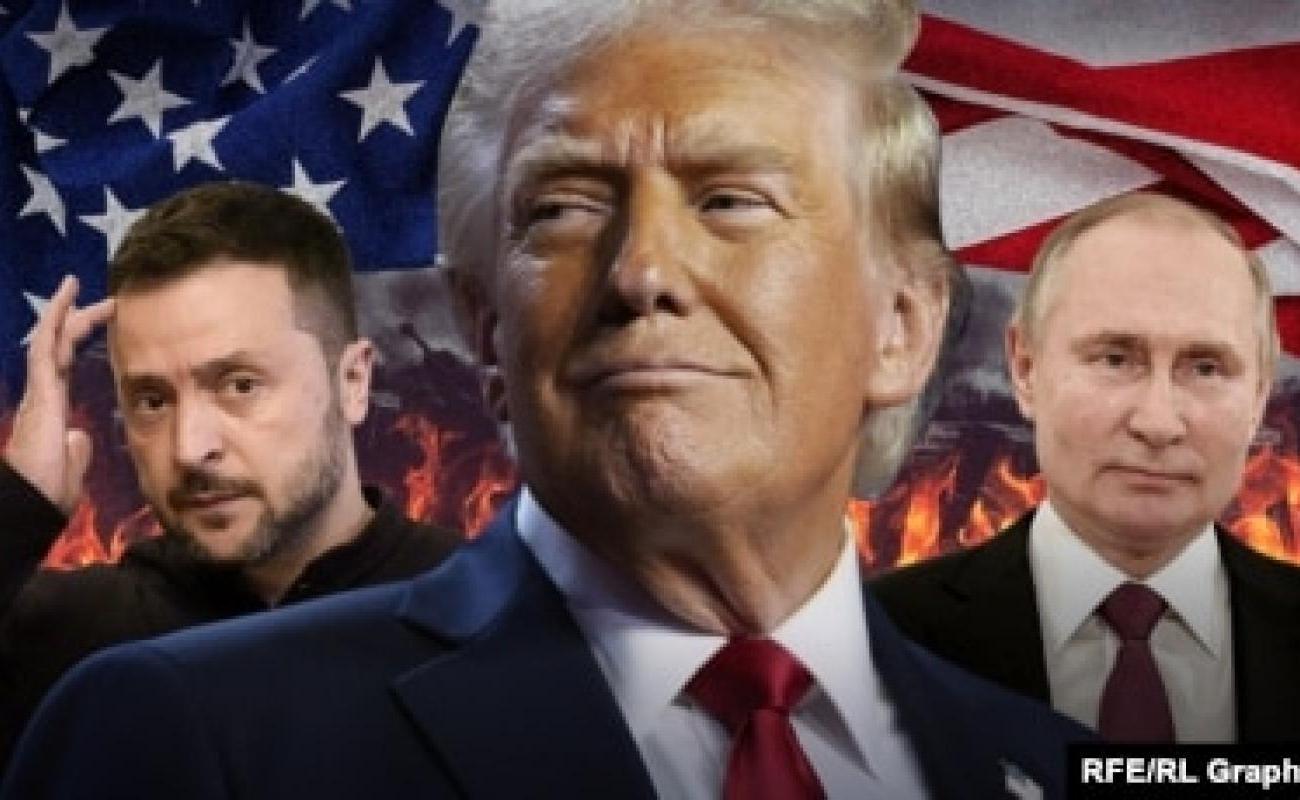"Freezing" the war. Are there levers of pressure on Russia?

As the inauguration of Donald Trump approaches, there are more and more frequent talks about a possible end to the Russian-Ukrainian war, although they are not accompanied by any concrete information. At the same time, there is more and more talk about how the newly elected American president will be able to "put pressure" on his Ukrainian colleague Volodymyr Zelensky, but almost never - about the levers of influence that Trump has on Putin.
Meanwhile, Putin was the one who started this war - and only he can end it. After all, it has been repeatedly said that Ukrainian refusal to resist the aggressor means the death of Ukraine, and Russian refusal of aggression means the preservation of both states. But that is exactly what Vladimir Putin would like to avoid.
So what are the actual conditions under which the Russian president might agree to a "freeze" on the war or even to sign a large-scale peace treaty in the future? In my opinion, there are only two. The first is if the state of the Russian economy and the threat of social unrest in the future force the Russian president to at least suspend military operations in order to restore resources and gain strength for new conquests. And the second is if Putin, with such a pessimistic assessment of the economic and military chances, thinks that he will be able to achieve the transformation of Ukraine into a satellite state through political means and at lower costs.
It is not so easy to assess the state of the Russian economy, experts here and there differ in their estimates of the potential to delay the end of the war indefinitely. At the same time, for Ukraine, the state of the economy is not so important as Putin's opinion about this country, which is not the same at all. All is not so well with the "vegetation" of Ukraine and its "return to its home port". Putin already tried to take revenge for the defeat after two Maidans. But pro-Russian politician Viktor Yanukovych, elected Ukraine's president in 2010, had to leave the country after the Revolution of Dignity. And Volodymyr Zelensky, elected president of Ukraine in 2019, refused to capitulate to the Kremlin and after much deliberation in Moscow was declared the leader of the "side of war", however, like his predecessor Petro Poroshenko, with whom Putin also apparently met "constructively" after Poroshenko's election as president of Ukraine and "agreed".
However, it is an indisputable fact that Moscow will try to act with usual methods, but with the use of new technologies. The appearance on the TikTok social network of the leader of the banned OPZZ party and former deputy prime minister under Yanukovych, Yury Boyko, with the well-known narratives about the "endangerment of the Russian-speaking population" by unnamed "radicals" (after a visit to the SBU, Boyko clarified that he was referring to the former president Petr Poroshenko, and not the current head of state) can hardly be called a coincidence.
It is important to note that Bojko opened an account on the popular social network immediately after it became known about the triumphant performance of the pro-Russian candidate Calin Georgescu in the first round of the presidential elections in Romania. At the same time, the level of penetration of social networks and information in Ukraine is not comparable to that of Romania, the majority of the country's inhabitants prefer Telegram with its anonymous news channels and the almost complete lack of regulation and verification of information by traditional media. In this case, Ukraine's war-torn society may prove to be easy prey – no, not for openly pro-Russian forces, but for those who will talk about the importance of maintaining peace and "coexistence" with Russia in the absence of a clear security guarantee. Did we not see the possibility of such development through the experience of Georgia?
But for Putin to really decide that the time has come for the political absorption of Ukraine, the West must leave the war-weary country without aid or guarantees. It remains to be hoped that the leaders of Western countries - and, of course, the new, old president of the United States of America - will not agree to it. But then the question remains whether Vladimir Putin will agree to stop the war, if that stop means for him a de facto refusal to take over the neighboring country and restore the "imperial format" of Russia. And here we are already moving from Putin's premises for rejecting war, which we understand, to additional levers of pressure that no one knows yet, which will force the Russian president to agree to peace, security guarantees and Ukraine, which will avoid him. However, today only one person knows about these additional levers, that is, their presence or absence - and that, of course, is not Vladimir Putin.
